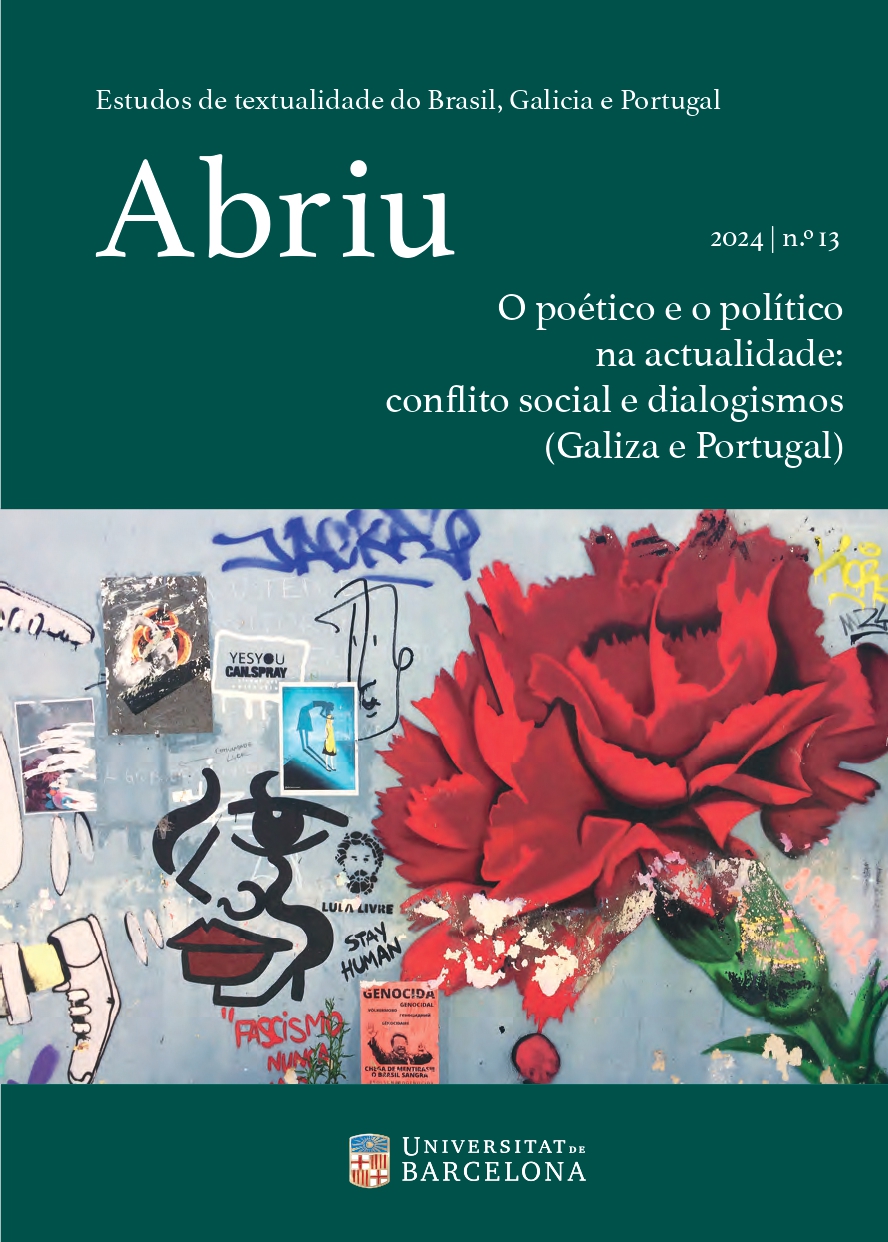Leitura Furiosa: a poetics of listening
DOI:
https://doi.org/10.1344/abriu2024.13.3Keywords:
Leitura Furiosa, poetics of listening , writing, education, co-creationAbstract
This article addresses the project Leitura Furiosa, an annual meeting in Portugal and France, which brings together writers, illustrators, and groups of people who do not do much writing and reading in their daily lives. The results of the meeting are the production of texts and illustrations collectively authored. Leitura Furiosa has both artistic and educational purposes, and seeks to combat illiteracy in associations and institutions that host people who are at risk or in situations of social vulnerability. The project seeks to show why writing and reading may be important to these groups of people, as well as to amplify their voices as marginalized groups. By analysing the project’s methodology, I will provide the context to Leitura Furiosa and address it as an artistic phenomenon that resists categorization, since it is close to the “littératures de terrain”, and includes dimensions of participatory and community art, according to François Matarasso’s theory. Furthermore, I will highlight the dialogical nature of the project drawing on Paulo Freire’s ideas, demonstrating how the practice of listening plays a pivotal role in the project’s dynamic, resulting in an artistic practice that is based on the idea of “writing with”. This article will analyse some of the co-created literary materials produced within the context of the project and thereby will demonstrate how Leitura Furiosa’s proposal is centred on a poetics of listening.
Downloads
Published
How to Cite
Issue
Section
License
Copyright (c) 2023 Mafalda Pereira

This work is licensed under a Creative Commons Attribution-NonCommercial-NoDerivatives 4.0 International License.
The Author retains ownership of the copyright of the article, unless the contrary is stated, and all rights not expressly granted in this agreement, including the non-exclusive right to reproduce, distribute, perform, and display the article in print or electronic form, and grants to Abriu: estudos de textualidade do Brasil, Galicia e Portugal the exclusive rights to first publication of the Article. The work will be available under a Creative Commons Attribution-Noncommercial-No Derivative Works license, by which the article must be credited to the Author and the Journal must be credited as first place of publication.


